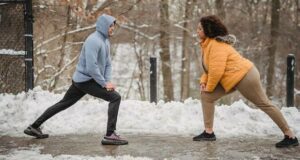How do you protect seniors, who are known to be more at risk of serious illness due to coronavirus, especially those with pre-existing conditions and those who are immune compromised? The majority of older adults do not live in residential facilities and instead are cared for by family members, therefore the coronavirus outbreak is especially worrisome for those who are living with elderly loved ones in a multigenerational home.
READ: Retirees encouraged to get involved during pandemic
Family caregivers should take the following precautions to protect seniors from COVID-19:
- Follow CDC guidelines for social distancing. Don’t panic, but prepare your home to allow for the possibility that you will need to limit your time in public spaces. Be mindful of the CDC’s advice that, “The best way to prevent illness is to avoid being exposed to the virus.”
- Keep as much distance as possible between people in the home. For example, limit the elder to a single location in the house and don’t share personal items. The virus spreads easily among people in the same household, and older adults within the house are at higher risk levels than healthy adults and children. Make every effort to minimize the impact of multigenerational living.
- Limit contact with the elder to one person. Designate a primary caregiver to provide all contact with the elder in the home. The primary caregiver should also limit their daily interactions with people outside the home to reduce their risk of exposure.
- Wash hands with water and soap for at least 20 seconds. The CDC recommends we become very serious about personal hygiene, even within our own homes. Regular soap and water is the most effective protection against spreading the virus. If you are using a hand sanitizer, make sure it contains at least 60 percent alcohol. Cover all surfaces of the hands with sanitizer and rub until dry.
- Clean all household surfaces daily with EPA-registered household disinfectants. Prioritize even more rigorous cleaning of high-use areas.
- Postpone non-essential doctor and dentist visits.
- Spend some time outside. The fear and anxiety accompanying this outbreak may feel overwhelming on top of the everyday stressors of caring for an aging parent. Limit your exposure to news reports and social media. Take a walk, step outside to breathe some fresh air, or lead your parent to the porch while you plant some spring flowers or stretch your legs in the back yard. Stay connected to family, friends and neighbors by teaching an elder how to Skype or Facetime. Your reaction to the situation influences the reaction of those in your household. Caregivers who are confident and calm in their preparations will be better prepared for the challenges that lie ahead.
Senior Living vs. In-Home Care Amid COVID-19
If your elderly loved one resides in a senior living community, it is important to respect the rules the facility has put in place to protect its residents. Long-term care facilities are dedicated to making the best care decisions possible during these unprecedented circumstances. Restricting visitors shields residents, while also protecting the general public from any viral danger.
Removing a senior from a senior living facility is not a guarantee for preventing the spread of infection and brings a whole new set of complications. Moving a senior, especially one with cognitive impairment can be very unsettling and, in some cases, may lead to further cognitive and behavioral decline. An in-home care plan must be in place to provide the level of care necessary to maintain the safety and health of an elderly loved one. If you are unable to provide the proper level of care at home, seniors are safer staying in their long-term care facilities. Stay involved in the care of your loved one by maintaining communication with the facility to respectfully express your concerns and inquire about measures the facility is taking to protect its residents while following your elder’s care plan.
–agingcare.com
 Metro Voice News Celebrating Faith, Family & Community
Metro Voice News Celebrating Faith, Family & Community








